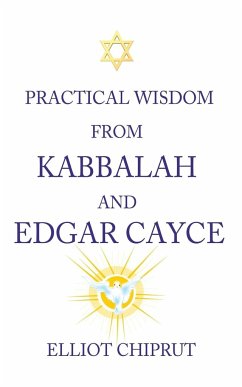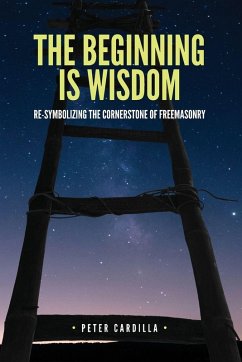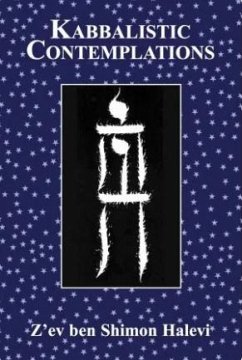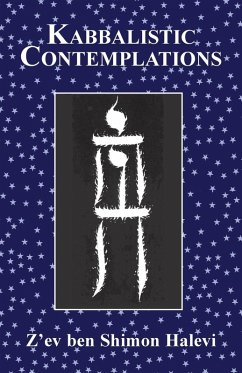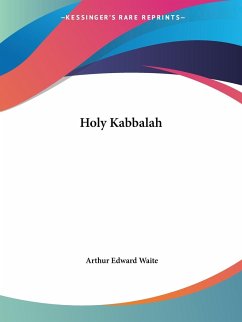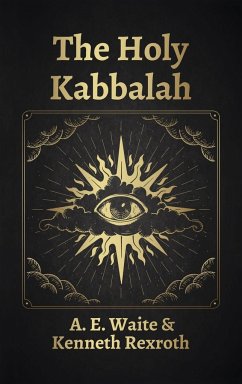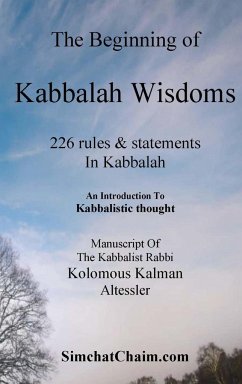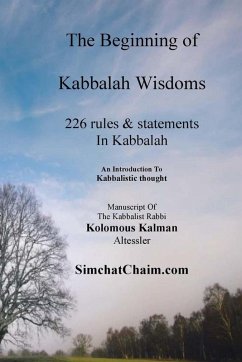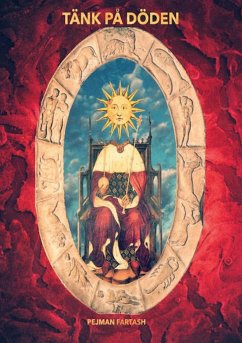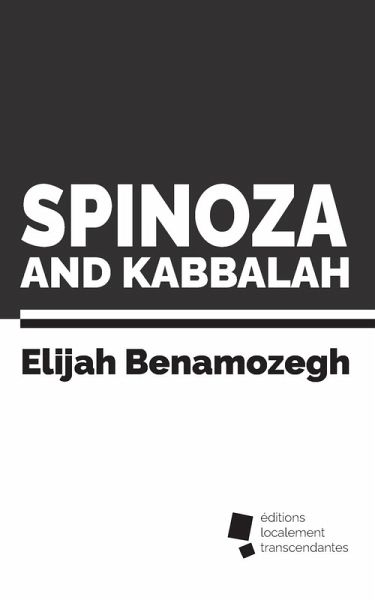
Spinoza and Kabbalah
Versandkostenfrei!
Versandfertig in 1-2 Wochen
13,99 €
inkl. MwSt.

PAYBACK Punkte
7 °P sammeln!
Elijah Benamozegh was an uninvited guest at the philosophers' banquet. Self-taught in western philosophy and modern sciences, he was a stranger in the room of Parisian metaphysical debates. Born in Livorno in 1823 to a family emigrated from Marocco, his first education was done by his maternal uncle, Rabbi Yehuda Coriat, author of important kabbalistic works. This first schooling was only Hebraic, and included the complete reading of the Zohar. Thus read under the guidance of an authentic traditionist, the Zohar would remain the metaphysical inspiration of Benamozegh. This first schooling enco...
Elijah Benamozegh was an uninvited guest at the philosophers' banquet. Self-taught in western philosophy and modern sciences, he was a stranger in the room of Parisian metaphysical debates. Born in Livorno in 1823 to a family emigrated from Marocco, his first education was done by his maternal uncle, Rabbi Yehuda Coriat, author of important kabbalistic works. This first schooling was only Hebraic, and included the complete reading of the Zohar. Thus read under the guidance of an authentic traditionist, the Zohar would remain the metaphysical inspiration of Benamozegh. This first schooling encompassing the vast span of Hebrew culture, which he shared with Spinoza, should have established his competence as a judge. But his 'Spinoza and Kabbalah', published in 1863 in the very parochial L'Univers Israélite, went almost unnoticed. That the question of the influence of Kabbalah on Spinoza's ontology should be problematic is in itself a wonder. It never escaped the acuity of careful readers, Leibniz among them. After the most recent research, it has become hardly deniable. The long obfuscation of the fact that the starting point of Spinoza's speculation on the absolute unity of ultimate Being and the production of the finite by the infinite lays in the kabbalistic books he owned, cannot be explained but by a conspiracy of ignorance and interest. Ignorance might be excused. Kabbalah literature has only started to be translated and studied. A cursory review of the interests at play is more interesting. Spinoza has long become the private preserve of enlightened Jewish scholars, for whom he is a personal model and a cultural hero. Compared to the subtlety and profundity of the ontological discussions among the kabbalists, Spinoza's simplification posing as rationalism might pale and show itself as a closure of the mind bordering on charlatanism. Even more curious, is the destiny of Spinoza as Prophet for some radical circles. An alleged Prophet of radical democratic struggle could not be avowed to be, though heretical, a profoundly religious thinker. But Benamozegh's contribution is a lot more than a landmark in the retrieval of Spinoza's intellectual background. He reveals here his philosophical acumen in picking up in Spinoza's system the weakest link: the modes infinite. The exact status and function of these modes, at the same time individuality and infinity, is an old puzzle in the interpretation of Spinozism. Commentators have stressed Spinoza's own embarrassment when confronted on this question and challenged to give examples of infinite modes. Benamozegh's main goal in this article was clearly to elevate the intellectual status of Kabbalah in the eyes of his audience: to diagnose Spinoza's ontology as an aberration of Kabbalah is both proving that Kabbalah is an ontology and that Spinoza's language might be used as a tool to formulate the rational exposition of that ontology, or at least to make the point that such a rational exposition is possible. Before even pretending to establish the intellectual legitimacy of the Jewish tradition in the eyes of enlightened Europeans, Rabbi Benamozegh had to confront the western European Jewish intellectual and rabbinical establishment on the antiquity and authenticity of Kabbalah itself. In La Kabbale et l'origine des dogmes chrétiens Benamozegh first demonstrates that the main features of Christian theology are already present in the New Testament and are not a late elaboration by the Church. He shows that they can be understood only in the light of Kabbalah as an aberration by simplification and conflagration of ontological levels. This line of argument is the exact counterpart of the one expounded here. Christianity and Spinozism are symmetrical aberrations deviating from a deeper inner core. As teratological models, they are witness to a hidden Truth, infinitely more immense and beautiful.





